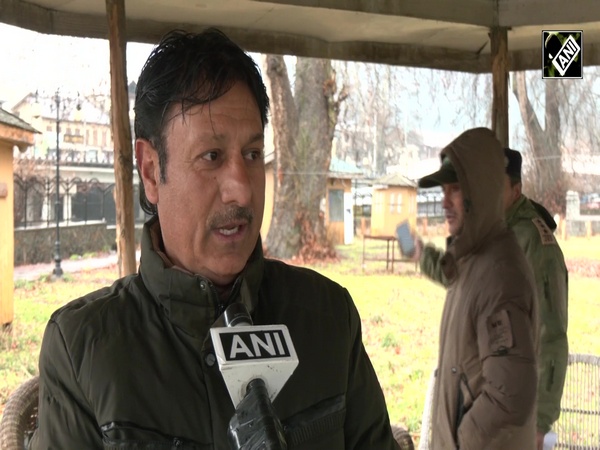China spreading its debt tentacles in Central Asia
Sep 11, 2022

Beijing [China], September 11 : China's influence has been quietly expanding in a more pervasive way in Central Asia. Since 2000, Beijing has been expanding its lending activities in Central Asia.
Valerio Fabbri, writing in Geopolitica.info said that this policy was carried out within the framework of the Shanghai Cooperation Organization (SCO).
At the SCO summit held in Tashkent in 2004, China announced that it would allocate USD 900 million in loans to member countries. This figure was increased to USD 10 billion USD at the SCO summit in 2009. Since then, the Central Asian countries continue to borrow from China.
According to experts, Beijing has further motives for giving loans to Central Asian countries: Firstly, it gains a share in the vast Central Asian markets and access to their energy resources. Secondly, Beijing gets the contracts for the projects awarded to Chinese companies.
Thus, a part of the allocated funding comes back to the country. Thirdly, Beijing makes these countries toe its line on contentious issues on international forums, added Fabbri.
For example, the countries of Central Asia do not support Turkic tribes whose rights are violated in China, and they do not vote for anti-China motions in international organizations.
China's loans have specific objectives. Beijing offers loans only for those projects that allow the expansion of markets for Chinese products and the transfer of wealth.
In Central Asia, it has mainly allocated loans for oil and gas transportation, energy resource development, mining activities and infrastructure projects. A mandatory requirement of the lending is allowing the participation of Chinese companies in the realization of these projects, reported Fabbri.
The three lending institutions of China that offer loans in Central Asia are the People's Bank of China, the Export-Import Bank of China and the China Development Bank.
Major recipients of the loans from these banks are Kazakhstan and Turkmenistan, the two Central-Asia countries richest in oil and gas. It is no surprise that Beijing also looks to exploit the economic vulnerabilities of a country.
As a matter of fact, the failure to repay the loans on the part of Kazakhstan has led to an increase in China's share in the country's oil industry over the years.
For example, when Kazakhstan was facing an economic crisis, China allocated USD 5 billion of funding to this country, and about USD 3.5 billion of this amount was spent on clearing the debt of technical equipment purchased from China in previous years, reported Geopolitica.info.
However, in the recent past, Kazakhstan-China economic relations have come under duress. In September 2021, Beijing created serious obstacles to importing and exporting Kazakhstan's goods. This had a negative impact on Kazakhstan's economy.
In order to prevent any further deterioration in the economic situation, Kazakhstan wants to diversify its import-export operations and is considering access to European markets through Azerbaijan, said Fabbri.
In the case of Turkmenistan, failure to repay the loan led the country to cede a share to China in its gas production industry. Beijing now exploits and transports part of Turkmenistan's gas to China.
In Tajikistan and Kyrgyzstan, two poor countries in Central Asia, power stations and railways were built using the loans received from China.
However, both Bishkek and Dushanbe faced serious difficulties in debt repayment. Kyrgyz President Sadyr Japarov reportedly stated that due to increasing foreign debts, Kyrgyzstan is facing the danger of losing its independence. Incidentally, its debt to China is about USD 2 billion.
China owns more than half of the public debt of Tajikistan and Kyrgyzstan. Despite Central Asian countries defaulting on loan repayments, Beijing does not stop financial cooperation with these countries. On the contrary, it plans to allocate loans again.
Today, not only Kyrgyzstan, but almost all Central Asian countries are facing serious difficulties due to their debts to China. A small country like Tajikistan owes China more than USD 1 billion, and Uzbekistan owes 16 per cent of its income. Also, Kazakhstan is among the countries that constantly owe money to China.
These have been perpetuated by China's strategy to make these countries dependent on it and capture the market of these countries on the pretext of financial assistance.
Moreover, Central Asia sits at the heart of China's foreign policy, not because of any expansionist ambitions but because it is an extension of domestic challenges in Xinjiang.
To build a strong economic environment to support Xinjiang, Beijing has been transforming Central Asia through infrastructure projects.
















